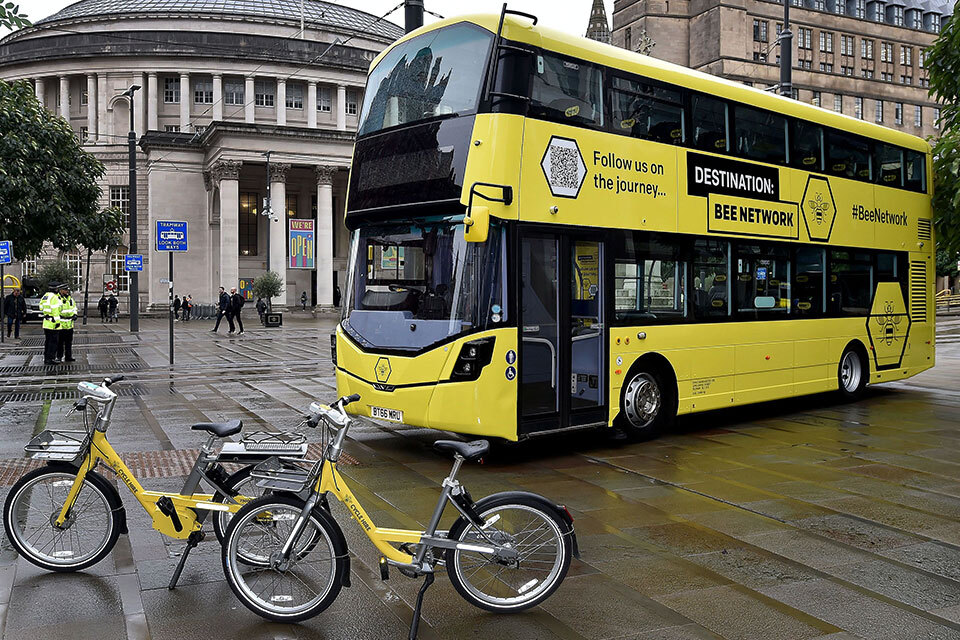- bus passengers across the UK – particularly the vulnerable – will be protected from sudden cuts to their services thanks to the Bus Services Bill, which has passed its second reading
- Local Transport Minister visits Blackpool, seeing first-hand how locally controlled bus routes are restoring trust in public transport
- empowering local leaders, government invests recent record £1 billion to improve bus services and drive up living standards by delivering the Plan for Change
Thousands of bus passengers who rely on vital routes to get to work, school or the doctors will be protected from sudden and uninformed cuts to services thanks to the government’s Bus Services Bill.
In a move that will protect thousands of miles of vital bus routes, the Bus Services Bill will end the plight of bus routes being scrapped at short notice, tightening requirements for cancelling vital bus routes – especially those used by vulnerable or disadvantaged passengers.
Councils will identify socially necessary local services, and working with bus operators, put in place strict requirements before these services can be changed or cancelled.
As the Bus Services Bill reached its second reading in the House of Commons yesterday (2 June 2025), the Transport Secretary called for greater accountability and reliability for bus services. MPs have also begun to have their say on proposals to protect vital services and empower local authorities to make the decisions that will benefit their communities.
The bill, which has already passed through the House of Lords, will improve access to opportunities that drive up living standards and so grow the economy, as part of the Plan for Change.
Buses remain the most used form of public transport across England, but approximately 300 million miles of bus services operating outside London were slashed from 2010 to 2024, with passengers left frustrated at the lack of accountability.
MPs also debated how the bill will allow local authorities to emulate the success of locally controlled bus networks.
To mark the milestone, the Local Transport Minister, Simon Lightwood, visited Blackpool last week to hear first-hand from passengers how the locally controlled Blackpool Transport buses have put their needs first to deliver services that allow them to access jobs and social opportunities that drive up their quality of life.
Transport Secretary, Heidi Alexander, said
We’re committed to giving local leaders the power to shape the bus services their communities rely on. Our Bus Services Bill is a big step forward, protecting vital services that people depend on to get to work, school, or essential appointments.
We have taken a decisive step towards better buses, building on our £1 billion investment to improve and maintain bus services, keeping people connected, driving up living standards and growing the economy in line with our Plan for Change.
The plans will lift the ban on local authorities establishing their own bus companies, making it easier for them to control services and shape routes to work better for local people.
As part of this, the government will also reduce some of the complexities and red tape involved in bus franchising, including reducing the minimum period between local areas taking control and being allowed to run services.
The bill will also empower local authorities to work alongside private operators to improve bus services if they choose not to pursue full ownership.
The government is also investing a near £38 million to bring 319 new zero emission buses to communities across England, while nearly £1 billion is being invested in England to improve bus infrastructure with new bus stops and digital timetables, introduce more frequent and more reliable buses and expand fare discounts.
The bill will also improve safety for both passengers and staff by mandating that staff, including drivers, undertake training to recognise and respond to incidents of criminal and anti-social behaviour, including acts of violence against women and girls.
Mayor for Greater Manchester, Andy Burnham, said
Deregulation of buses came at the expense of passengers, with a shrinking network, high fares and a service not fit for the rapid growth and scale of ambition we are seeing in Greater Manchester.
As the first area to bring buses back under local control, our Bee Network is putting people and businesses before profit, reversing decades-long decline in buses with rapidly growing numbers of passengers served by a more reliable, affordable and integrated network. This is central to supporting economic growth, higher productivity, access to new jobs, homes and public services and opening up opportunity for all.
This bill is vital to reforming transport networks across the country, putting power back in the hands of locally accountable leaders to ensure services work for the communities they serve.
North East Mayor, Kim McGuinness, said
On my first day as mayor, I started the legal process to bring buses back under public control because good public transport is how we unlock growth and opportunity for local people. I hear every day from people fed up with poor bus services.
This can’t go on, so I’m pleased the government is working with mayors and local authorities to bring in legislation that will support our effort to improve bus networks across the country. It is crucial we fix the broken bus market so we can provide the reliable, affordable public transport people need.
Professor Karen Lucas, Director of Manchester Urban Institute, said
The new buses bill will finally put a halt to the decimation of socially necessary services after years of unregulated cuts that have left many vulnerable people and low-income and rural communities stranded. This is a good first step in the right direction, but more local action is needed.
Lydia Horbury, Bus Users UK Director for England, said
The protection of socially necessary bus services is vital to ensuring that everyone – regardless of age, income, or ability – can access education, employment, healthcare and their wider community. For too long, communities have been left stranded by sudden cuts to lifeline routes.
Strengthening the framework around these services, as proposed in the Bus Services Bill, is a crucial step toward building a truly inclusive and reliable transport network outside London. We support any measures which empower local authorities to safeguard these routes and the passengers who depend on them.
Ben Plowden of Campaign for Better Transport said
Buses are the most used form of public transport, connecting millions of people to jobs and education, shops and services, friends and family. Preserving vital bus services has long been central to our campaigning, so the new protections in the Bus Services Bill are very welcome indeed.
Protecting existing services and identifying and filling gaps in the network is the way to ensure everyone can access opportunities and stay connected.
Jason Prince, Director of the Urban Transport Group, said
The government has moved rapidly to bring about better buses by providing local leaders with the right tools to improve services for their communities. We welcome the Bus Services Bill and its commitment to back passengers and the services they rely upon.






